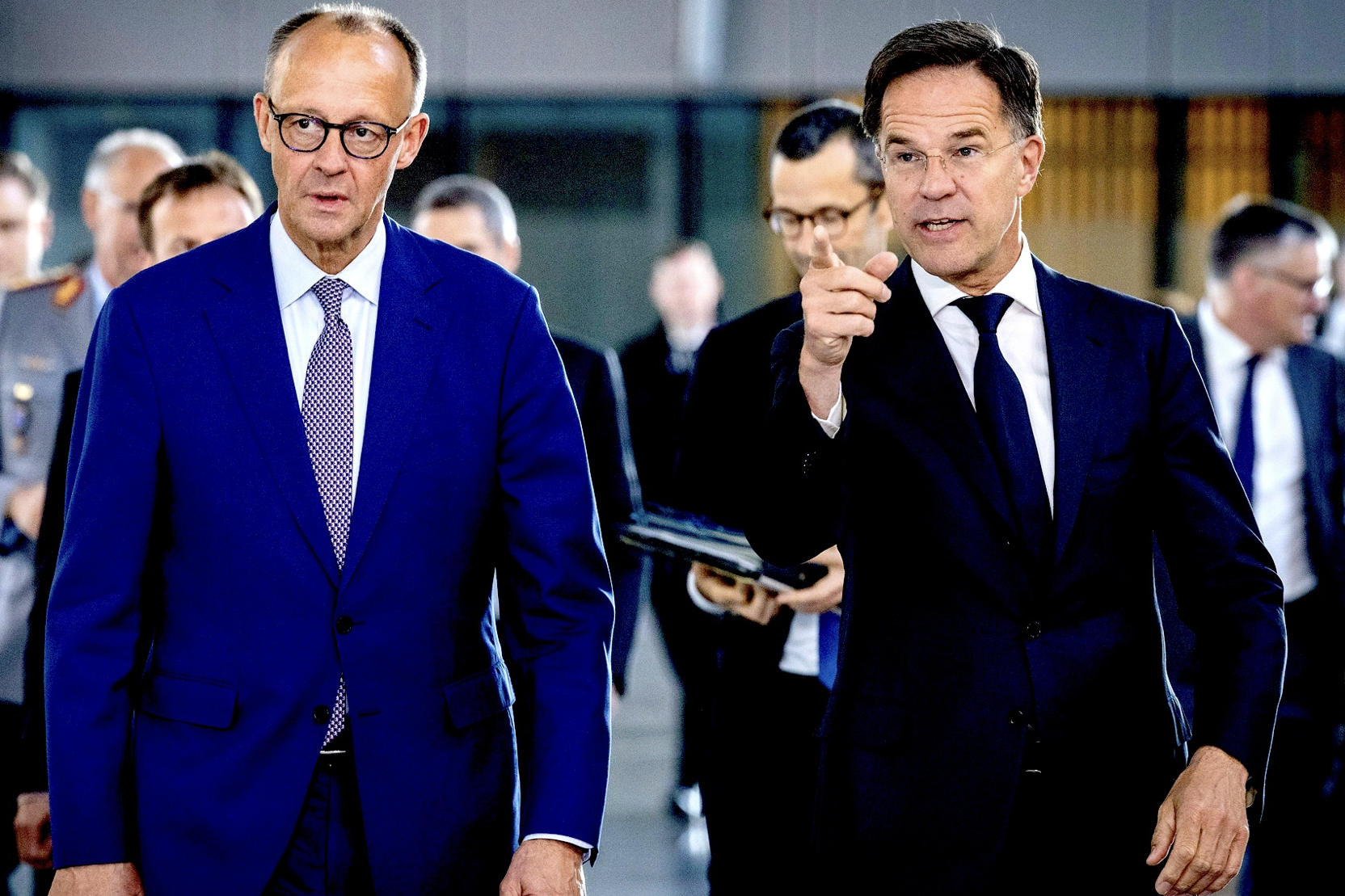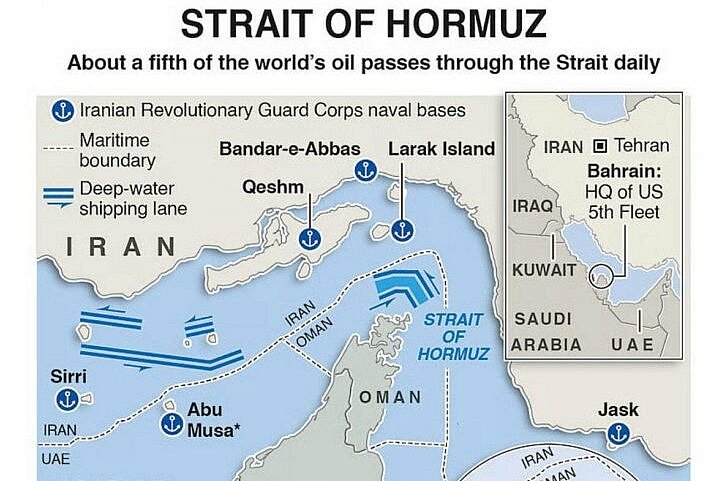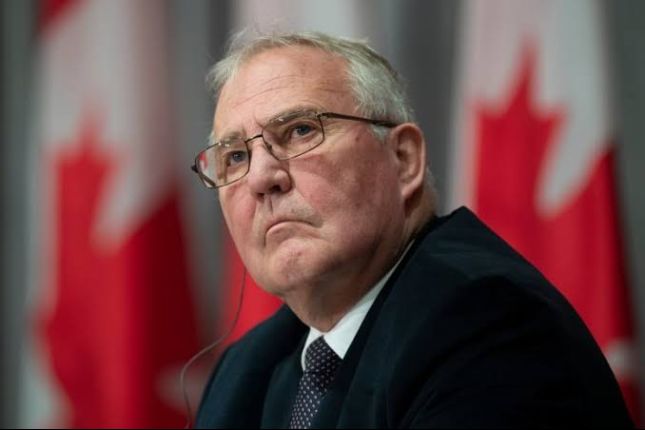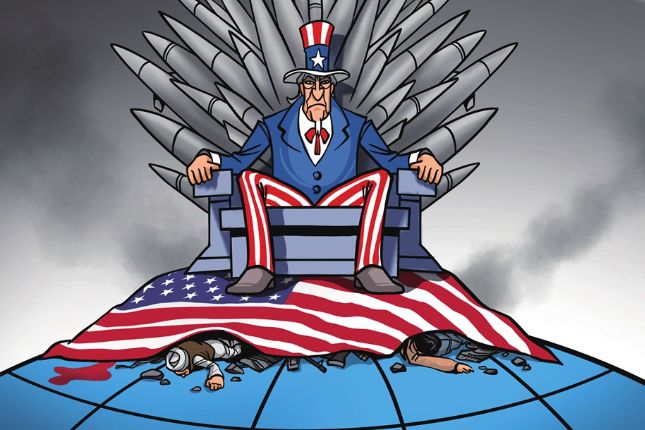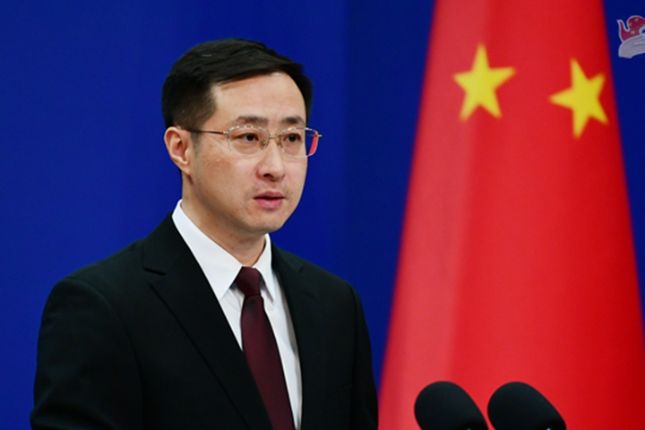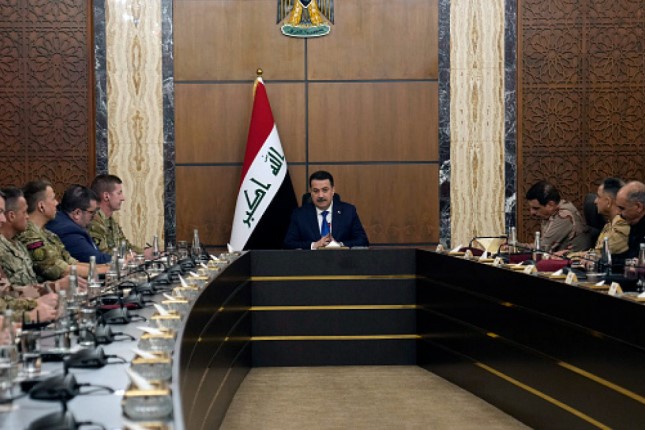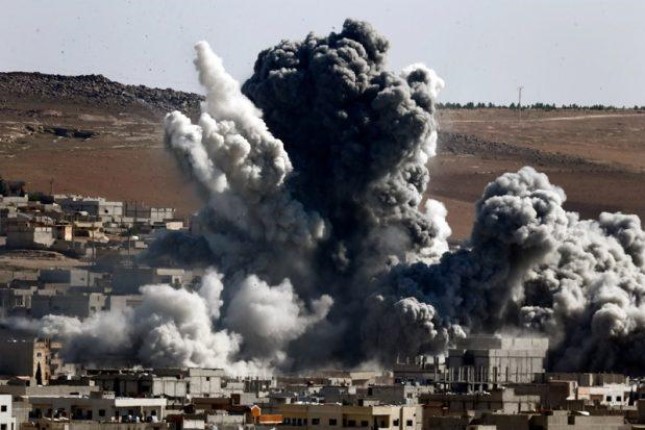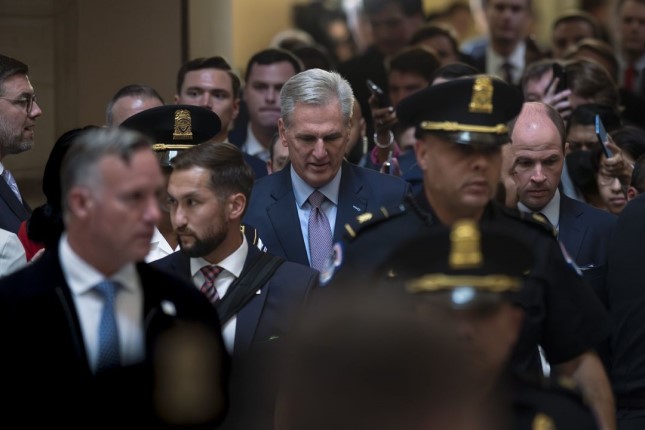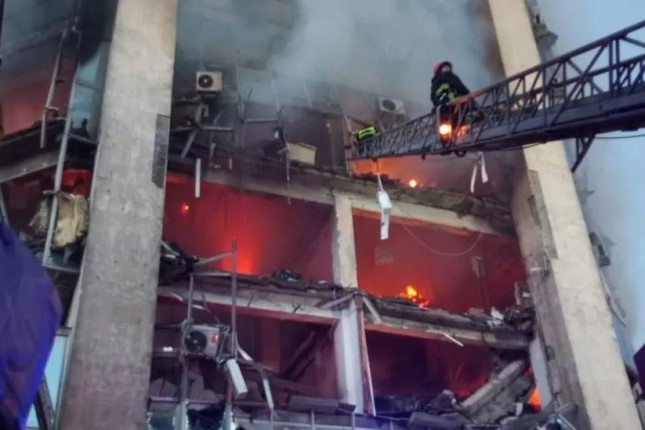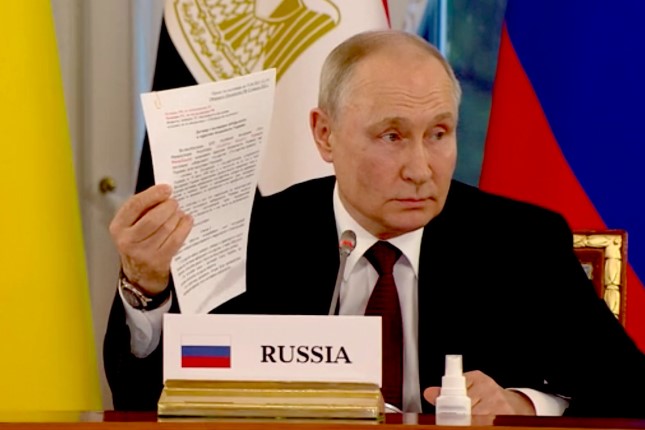Friedrich Merz has been in office as Germany’s new chancellor a matter of weeks, and already he has the German capital aflutter with worry about the increasing danger of a third world war. More to the point, while Germans are fearful of such a prospect, the Russians are warning of it.
In a series of recent remarks, notably on German television, Merz has stopped just short of stating that he intends to authorize supplies of German-made ballistic missiles to Ukraine and to do so without imposing restrictions on the Kiev regime’s use of them to attack Russian territory. This is a tripwire for Moscow, as Merz cannot possibly fail to see.
There are reports, notably from a Moscow television news presenter and blogger, Ruslan Ostashko, that Taurus missiles have already been shipped from Schrobenhausen, the Bavarian town where the Taurus is manufactured, and that Kiev now awaits authorization from Berlin to use them.
Quoting a source “in Zelensky’s office,” Ostashko reported that BND and MI6, the German and British intelligence services, have overseen the Taurus shipments.
But this is a highly sensitive matter and there has been no official confirmation of Ostashko’s report. He may be reproducing the sort of purposeful leaks hawks commonly use to manage public opinion and avoid controversy while recklessly leading a nation closer to a war. The Kiev official may intend to encourage German momentum on the Taurus question.
These practices were routine in Kiev and Washington, for instance, as the Biden regime raised the quantity and sophistication of the matériel it sent the Ukrainians after it provoked the Russian intervention three years ago. But at this fraught moment the provenance or veracity of these reports can neither be confirmed nor discounted.
The Merz government’s caution is especially important if the chancellor is to foment hostilities with Russia as he plans without his fractious coalition government collapsing.
“There are no longer any range restrictions on weapons delivered to Ukraine,” he declared on German television May 26, “neither by the British nor the French nor by us — nor by the Americans.”
After a meeting with Volodymyr Zelensky in Berlin two days later, Merz announced that Germany will finance production of long-range weapons in Ukraine — again, with no restrictions on their use. He and the Ukrainian president are shortly to sign an extensive arms agreement, it was also announced.
Merz is salami-slicing, as the expression goes. But even planning to deploy the Taurus is a daringly provocative escalation of Germany’s involvement in the West’s proxy war against the Russians. It is the most powerful of the ballistic missile systems available in the West. With a range of 500 kilometers, 310 miles, it is capable of reaching Moscow from Ukrainian territory, and the Ukrainians would need German personnel to operate these systems. Germans would also supply targeting data from a location, not yet known, in Germany.
This is why Merz’s predecessor, Olaf Scholz, refused to send the Ukrainians Taurus missiles. It is why Merz speaks often and forcefully of backing Ukraine without limits on the use of German-supplied weapons while stopping a coy shade short of naming the Taurus. It is why, every time the chancellor hints with a heavy hand that he will soon authorize Taurus shipments to Kiev, the Social Democrats, Scholz’s party and Merz’s coalition partner, make a public statement that official policy on the Taurus question has not changed.
Russian Warnings
To the extent public opinion matters to Merz, German voters are decisively opposed to Taurus deployments in Ukraine. All this is also why putting the Taurus on Ukrainian soil has Moscow in something of an uproar. It would be hard to overstate the gravity Russians attach to this question.
Andrei Kartapolov, who heads the defense committee in the Duma, warned on May 29 that Russia could retaliate if Germany ships the Taurus to Ukraine, and his is one of many voices suggesting a strong Russian response.
In an opinion piece the previous day on the Russian news network RT, its longtime editor-in-chief, Margarita Simonyan, suggested Russia should attack Berlin if Germany sends the Taurus to Ukraine and Kiev launches them at Russian targets. Simonyan does not occupy a place in the hierarchy comparable with Kartapolov’s, but she gives a good idea of what is on many Moscow minds now.
As you may have noticed, U.S. President Donald Trump has been carrying on lately about Russia’s recent drone-and-missile attacks on Ukrainian towns and cities. “What Vladimir Putin doesn’t realize is that if it weren’t for me,” he remarked on his Truth Social digital bullhorn the other day, “lots of really bad things would have already happened to Russia, and I mean REALLY BAD. He’s playing with fire!”
Trumpian bluster, of course. But it prompted this response on “X” from Dmitry Medvedev, deputy chairman of Russia’s Security Council and for an interim the Russian president: “Regarding Trump’s words about Putin ‘playing with fire’ and ‘really bad things’ happening to Russia, I only know of one REALLY BAD thing — WWIII. I hope Trump understands this!”
Another measure of the temperature in Moscow.
Trump, you’ll also have seen, is under enormous pressure from various quarters, notably but not only from Capitol Hill Democrats, liberal media, and longtime Republican hawks such as Sen. Lindsey Graham, to drop all thought of a negotiated settlement in Ukraine and join Merz and other European leaders as they impose yet more sanctions on Russia.
Trump’s outburst was intended more for these people than anyone in Moscow. The argument being pushed at Trump is that as Russia continues waging war in the absence of a ceasefire, it is proof Moscow does not want to negotiate for peace.
Everything is upside down at this point — everything in the official Western narrative, I mean.
Dmitry Medvedev warns of the danger of a global conflict, and you can read now — a tiresome old trope, this — that Moscow has threatened to start World War III. Last week, Sergei Lavrov, the Russian foreign minister, proposed June 2 for the next round of peace talks with Ukraine, again in Istanbul [where the two sides met for less than two hours after Ukraine’s attack on Russian air bases and merely agreed on a prisoner exchange.] Moscow also released its detailed proposal for talks toward a settlement of the conflict. But no, the Russians want only more war.
“The Russian memorandum, which was published by the Interfax news agency, said a settlement of the war would require international recognition of Crimea – a peninsula annexed by Russia in 2014 – and four other regions of Ukraine that Moscow has claimed as its own territory. Ukraine would have to withdraw its forces from all of them. It restated Moscow’s demands that Ukraine become a neutral country – ruling out membership of NATO – and that it protect the rights of Russian speakers, make Russian an official language and enact a legal ban on glorification of Nazism.”]
Merz and other European leaders stand for peace but impose new sanctions on the Russians. And there is the Taurus deployments, by all evidence to begin as soon as Merz judges the political coast to be clear.
Ask yourself: Why would Merz and his “centrist” colleagues in Paris and London war-monger and sanctions-monger — this with a notable measure of urgency — just as talks between Moscow and Kiev show the first glimmer of promise in three years?
I see no difficulty with this question. The West has lost the proxy war the U.S. and its European clients provoked in February 2022 — this is now patently so — and in a state of desperate denial there is a prevalent compulsion in the Atlantic alliance to prolong it beyond, well beyond, the point it makes any sense whatsoever. Donald Trump’s sin — well, among his many, but that is another story — is his refusal to go along with this craven charade.
Friedrich Merz just made the charade more dangerous.
The warmongering Merz has long been known for his obsessive Russophobia. The question on many German minds now is how willing is he to risk a military confrontation with the Russian Federation — if, indeed, provoking hostilities is not his intent.
Merz made a great display of his visit to Lithuania on May 22 to celebrate the first foreign deployment of Bundeswehr troops since World War II. “There is a threat to us all from Russia,” he declared in Vilnius, the Lithuanian capital. “We are protecting ourselves against this threat.”
This, too, is upside down. A century of history suggests this well enough. And it is well to remind ourselves that Russians view Merz’s ambitions on the military side, including his apparent determination to escalate Germany’s military support for Ukraine, through history’s lens. This is best understood as a measure of the seriousness Moscow attaches to the Taurus question and, in my read, as an indication of how strongly it may react.
On May 28, Sergei Lavrov spoke at a security conference in Moscow and made reference to the deployment in Lithuania amid reports of Merz’s intentions to give Kiev the missile it dearly wants. “Many were immediately reminded of the last century, when Germany twice became the leading military power,” he said, “and how much trouble that caused.”
Source: Consortium News.
